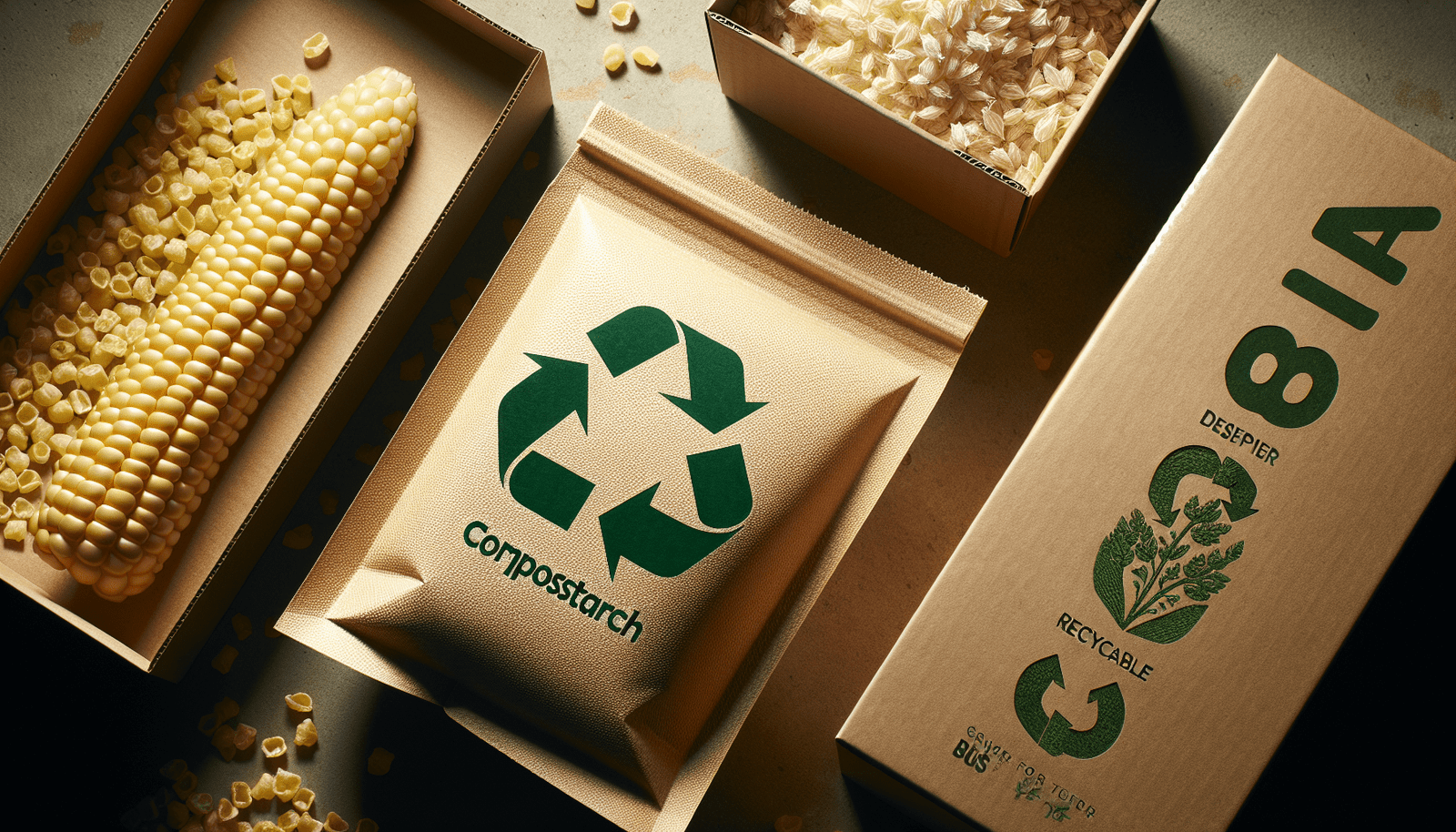Unveiling the Reality of Sustainable Packaging Solutions in 2024
Let’s talk about eco-friendly packaging, shall we? It’s all the rage these days, and for good reason! We’re all trying to do our part for the planet, and switching to greener packaging seems like a no-brainer. But here’s the thing: it’s not as simple as it sounds.Picture this: You’re standing in the store, holding two products. One says “biodegradable,” the other “compostable.” Which one’s better for the environment? Tough call, right? Don’t worry, you’re not alone in this confusion.
The world of eco-friendly packaging is like a jungle – lush with promise, but also full of hidden pitfalls. There are so many terms flying around: biodegradable, compostable, bio-based… it’s enough to make your head spin!And let’s be honest, some companies aren’t exactly helping. They’re slapping “green” labels on everything, even when the reality is a bit… well, less green than they’d have you believe.But don’t lose heart! In this article, we’re going to be your guide through this eco-packaging jungle. We’ll bust some myths, reveal some truths, and hopefully, by the end, you’ll be a savvy eco-packaging pro. Ready for an adventure? Let’s dive in!
Table of Contents
- The Rise of Sustainable Packaging
- Understanding Biodegradable and Compostable Materials
- The Controversy Surrounding Bio-Packaging
- Consumer Misconceptions and Label Confusion
- The Importance of Clear Communication in Sustainable Packaging
- Greenwashing: A Major Obstacle in the Eco-Friendly Packaging Industry
- The Benefits of Transparent Sustainability Practices
- Innovations and Future Trends in Eco-Friendly Packaging
- Conclusion: Navigating the Path to Truly Sustainable Packaging
- FAQs

Introduction
The Rise of Sustainable Packaging
The packaging industry has witnessed a significant shift towards sustainability in recent years. As consumers become increasingly aware of environmental issues, the demand for eco-friendly packaging solutions has surged. This trend has pushed companies to invest heavily in research and development of biodegradable and bio-sourced materials.
Key Drivers of Sustainable Packaging Adoption:
- Consumer demand for environmentally friendly products
- Government regulations on single-use plastics
- Corporate social responsibility initiatives
- Increasing awareness of plastic pollution’s environmental impact
However, despite these efforts, the commercially available bio-packaging options are not yet meeting the enormous market and consumer demands. This gap between expectation and reality has led to a complex landscape of claims, controversies, and challenges in the eco-friendly packaging industry.

Understanding Biodegradable and Compostable Materials
Before delving into the controversies, it’s crucial to understand the terminology used in sustainable packaging:
| Term | Definition |
|---|---|
| Biodegradable | Materials that can be broken down by microorganisms into natural elements |
| Compostable | Materials that break down into nutrient-rich soil under specific conditions |
| Bio-based | Materials derived from renewable biological resources |
| Bioplastic | Plastics made from biological substances rather than petroleum |
It’s important to note that these terms are not interchangeable, and their meanings can be easily misunderstood by consumers.
The Controversy Surrounding Bio-Packaging
Despite the promising nature of bio-packaging, several controversies have emerged:
- Ambiguous Environmental Impact Claims: Many companies make vague or misleading statements about the environmental benefits of their packaging.
- Resource Competition: The use of agricultural resources for packaging competes with food production, raising ethical concerns.
- High Environmental Costs: Some “bio” solutions have unexpectedly high environmental costs in their production or disposal processes.
- Compostability Concerns: Materials like PLA (polylactic acid) are often labeled as compostable but require industrial composting facilities, which are not widely available.
These controversies have led to skepticism among consumers and environmental experts alike, highlighting the need for greater transparency and regulation in the industry.
Consumer Misconceptions and Label Confusion
One of the biggest challenges in the eco-friendly packaging industry is consumer misunderstanding of product labels. A survey conducted by the Biodegradable Products Institute in 2019 revealed some startling statistics:
pie title Consumer Understanding of "Biodegradable" Label
"Correct Understanding" : 40
"Misconception" : 60- 60% of consumers believe “biodegradable” means a product will break down quickly
- In reality, biodegradation can take years depending on environmental conditions
This misconception extends to other terms as well, such as “bio-based” and “bioplastic.” Consumers often interpret these labels to mean the product is automatically environmentally friendly, which is not always the case.
The Importance of Clear Communication in Sustainable Packaging
Given the confusion surrounding eco-friendly packaging claims, clear communication has become paramount. Companies that effectively communicate the biodegradable and compostable aspects of their products gain several advantages:
- Building Consumer Trust: Transparent communication helps consumers make informed decisions, fostering loyalty.
- Product Differentiation: In a market flooded with vague claims, clarity can set a product apart from competitors.
- Promoting True Sustainability: Clear information encourages the development of genuinely sustainable packaging solutions.
- Reducing Environmental Impact: Proper disposal instructions ensure products are handled in an environmentally friendly manner.
Case Study: Company X’s Transparent Packaging Initiative
Company X implemented a clear labeling system for their biodegradable packaging, including:
- Detailed breakdown of materials used
- Specific disposal instructions
- QR code linking to more in-depth sustainability information
Results:
- 30% increase in customer trust ratings
- 25% boost in repeat purchases
- 15% reduction in improper product disposal
This case study demonstrates the tangible benefits of clear communication in sustainable packaging practices.

Greenwashing: A Major Obstacle in the Eco-Friendly Packaging Industry
While clear communication is crucial, many companies engage in “greenwashing” – the practice of making misleading or false claims about the environmental benefits of their products. This deceptive marketing tactic has become a significant issue in the eco-friendly packaging industry.
The Extent of Greenwashing:
According to a report by TerraChoice Environmental Marketing:
- 98% of products claiming to be “green” engaged in some form of greenwashing
- Only 2% of green claims were entirely truthful and transparent
This prevalence of greenwashing has serious consequences:
- Erosion of consumer trust
- Confusion in the marketplace
- Hindrance to the development of truly sustainable solutions
- Potential legal repercussions for companies
The Benefits of Transparent Sustainability Practices
Companies that prioritize transparency in their sustainability practices reap numerous benefits:
- Enhanced Consumer Trust: Honest communication builds credibility and fosters long-term customer relationships.
- Market Differentiation: In a sea of vague claims, clear and honest messaging stands out.
- Driving Innovation: Transparency encourages the development of genuinely sustainable solutions.
- Regulatory Compliance: Clear communication helps companies stay ahead of evolving environmental regulations.
- Positive Brand Image: Consumers are more likely to support brands with authentic sustainability practices.
Consumer Preferences for Sustainable Products
A Nielsen survey in 2017 revealed:
- 66% of global online consumers willing to pay more for sustainable products
- 53% more likely to purchase from companies with good corporate social responsibility reputations
These statistics underscore the importance of authentic sustainability practices in meeting consumer demands.
Innovations and Future Trends in Eco-Friendly Packaging
Despite the challenges, the eco-friendly packaging industry continues to innovate. Some promising developments include:
- Advanced Biodegradable Materials: New materials that break down more efficiently in various environments.
- Edible Packaging: Packaging made from edible materials, eliminating waste entirely.
- Reusable Packaging Systems: Closed-loop systems where packaging is returned, cleaned, and reused.
- Smart Packaging: Incorporating technology to extend product shelf life and reduce waste.
- Plant-Based Plastics: Developing plastics from renewable resources like algae or mushrooms.
Future Outlook
The eco-friendly packaging market is projected to grow significantly:
A[2024: $245 Billion] --> B[2025: $278 Billion] B --C[2026: $315 Billion]
D[2027: $358 Billion] E[2028: $406 Billion]This growth indicates a continuing shift towards sustainable packaging solutions, driven by consumer demand and technological advancements.

Conclusion: Navigating the Path to Truly Sustainable Packaging
The journey towards truly sustainable packaging is complex, filled with both promising innovations and challenging obstacles. While the demand for eco-friendly packaging continues to grow, it’s clear that there’s still a significant gap between consumer expectations and market realities.
Key takeaways:
- Clear communication is crucial in building consumer trust and driving genuine sustainability.
- Greenwashing remains a major obstacle, eroding trust and hindering progress.
- Consumers are increasingly savvy and demand authentic sustainability practices.
- Innovations in materials and systems offer hope for more effective eco-friendly packaging solutions.
As we move forward, it’s essential for companies to prioritize transparency, invest in genuine sustainability efforts, and educate consumers about the realities of eco-friendly packaging. Only through these concerted efforts can we hope to create a truly sustainable packaging industry that meets both environmental needs and consumer demands.
FAQs
- What’s the difference between biodegradable and compostable packaging?
Biodegradable packaging breaks down naturally over time, while compostable packaging breaks down into nutrient-rich soil under specific conditions. - How can I tell if a product’s eco-friendly claims are genuine?
Look for third-party certifications, detailed information about materials and disposal, and clear, specific claims rather than vague “eco-friendly” labels. - Are all bioplastics environmentally friendly?
Not necessarily. While bioplastics are made from renewable resources, their production and disposal can still have significant environmental impacts. - What should I do with packaging labeled as “biodegradable”?
Check local recycling guidelines. Many biodegradable materials require specific conditions to break down and may not be suitable for home composting. - How can companies improve their sustainability communication?
Companies should provide clear, detailed information about their packaging materials, proper disposal methods, and the specific environmental benefits of their products.







